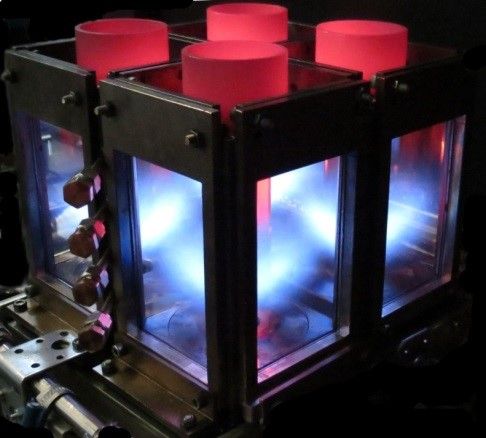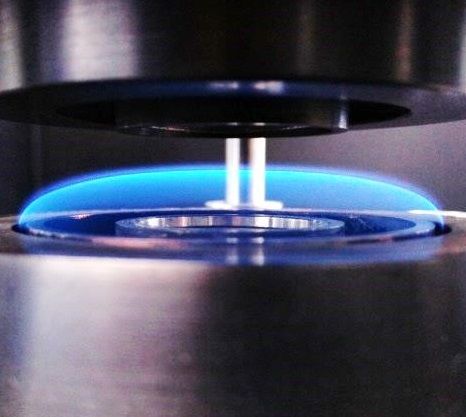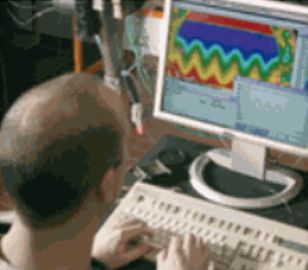Topic 1 - Energy Conversion
Energy conversion turns natural energy resources into end user energies which can be tapped. The KIT Energy Center is involved in all kinds of energy conversion, such as electrochemical processes in fuel cells or electromechanical processes in generators. The focus of Topic 1 is on combustion -chemical energy is turned into thermal energy-, chemical/synthetic fuels and related processes.
 |
Combustion and its Optimization Energy research at KIT looks for ways to convert fuels with a maximum of resource conservation and a minimum of emissions. The efficiency and non-polluting characteristics as well as the reliability and service life of turbines and piston engines must be further improved. |
|
Synthetic Fuels Future fuels should release as little CO2 and other pollutants as possible. It is for this reason that scientists at KIT are also developing new types of synthetic fuels, partly from organic residues, and optimizing them for their respective uses and with a view to future emission regulations. A focus is also Substitute Natural Gas, which is produced by renewable electricity and CO2 (Power-to-Gas), as e.g. demonstrated by the research project HELMETH under the coordination of KIT with PtG efficiencies >76%. |
|
|
Innovative Combustor Concepts and Applications Further research is dedicated to innovative combustion concepts and fuels as e.g. energy storage for thermal solar plants based on elemental sulphur. The aim is the development of combustors for Sulphur at high power density, which can be used in gas turbines or/and steam turbines for electricity production. |
|
|
Energy Conversion Systems To allow the benefits of new fuels to be fully exploited, KIT scientists work on matched and coupled technical systems. One of the challenges lies in achieving optimum combustion quality even of variable fuels. Work at KIT is centered on internal combustion engines with direct fuel injection, gas turbines, and new power plant processes as well as cogeneration systems. At the same time, scientists develop cooling technologies, study materials, and conduct computer simulations of physical and chemical processes. |


